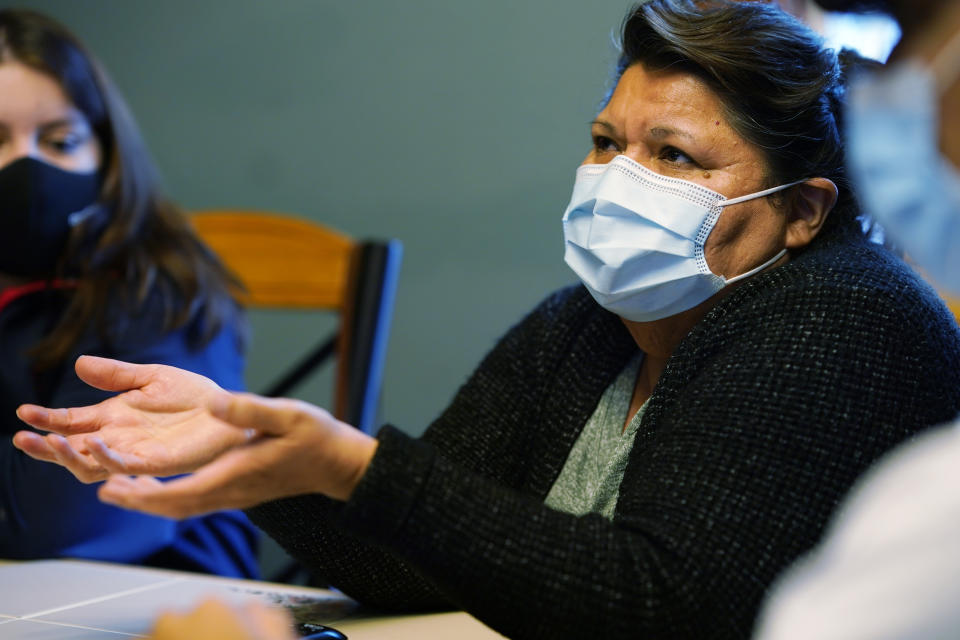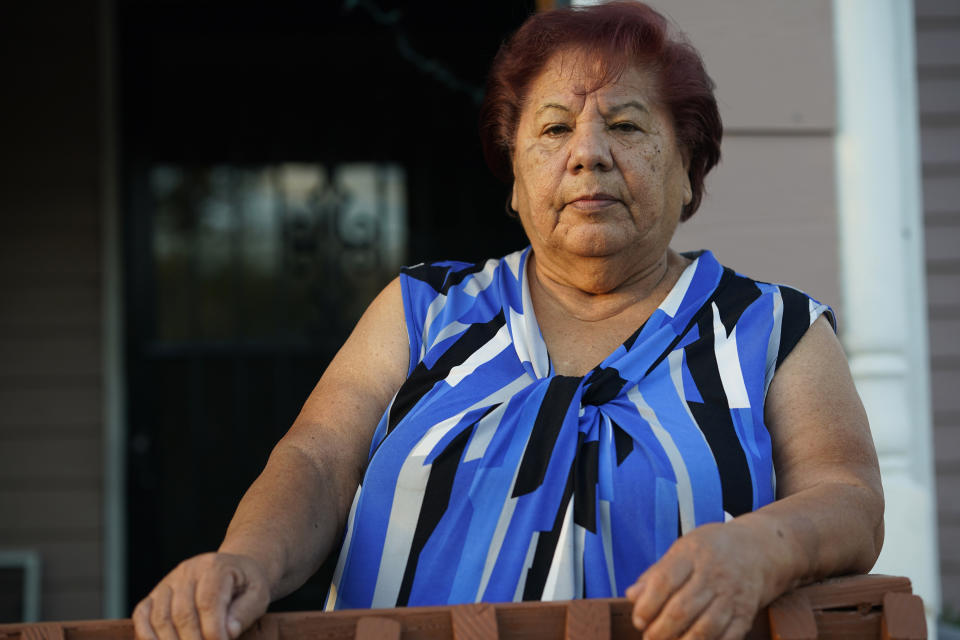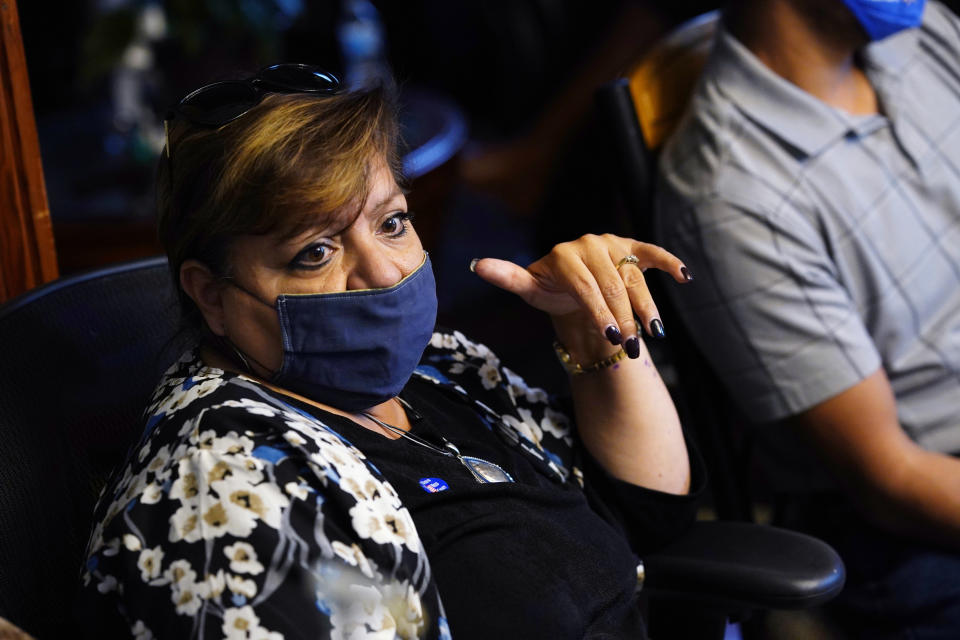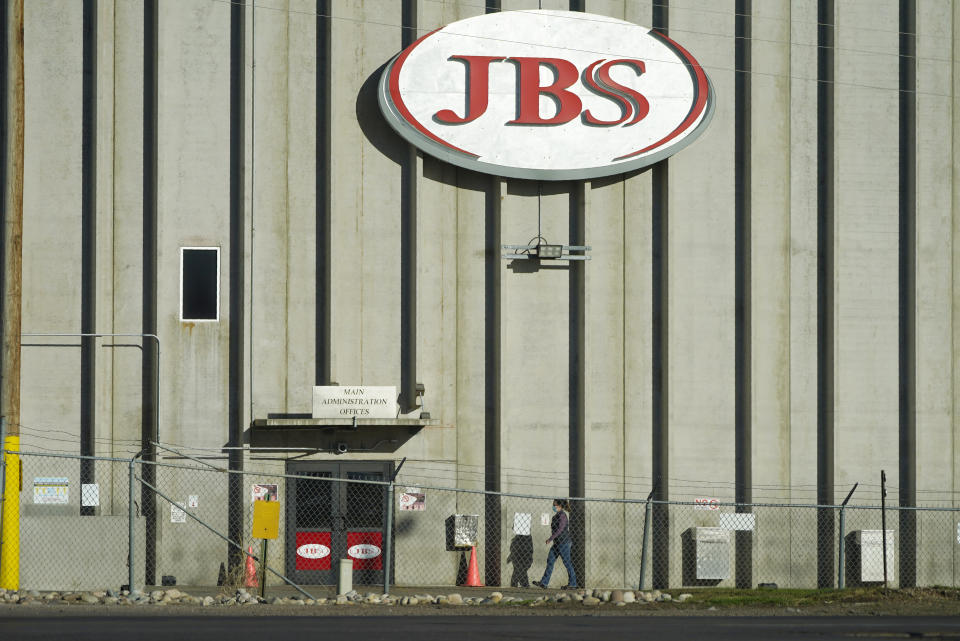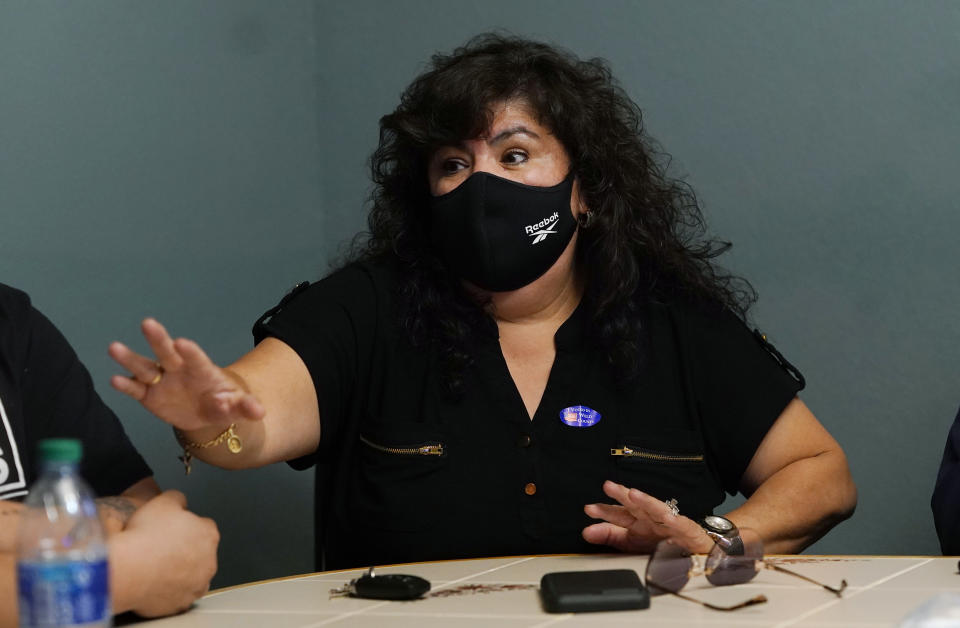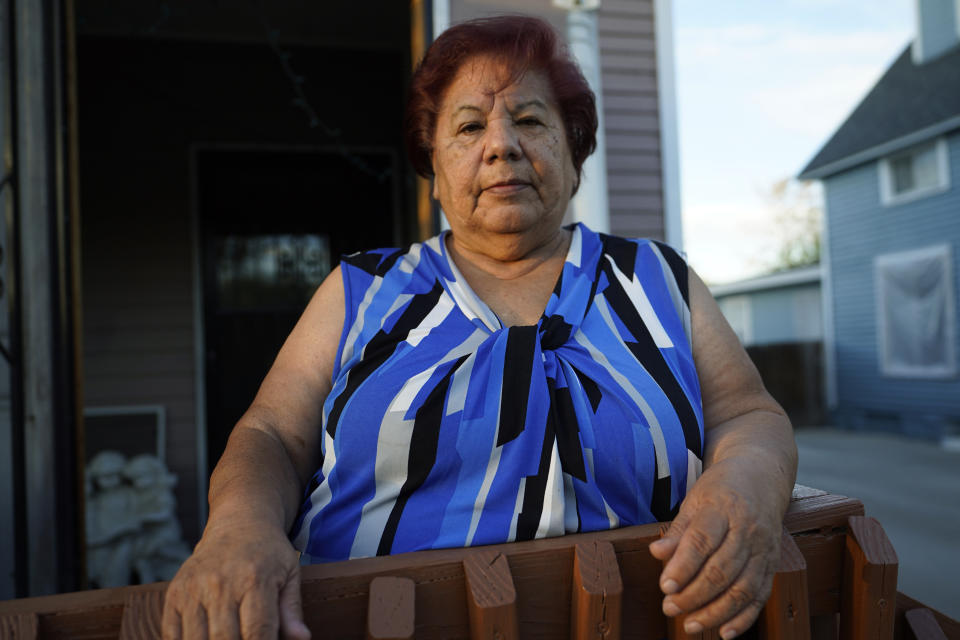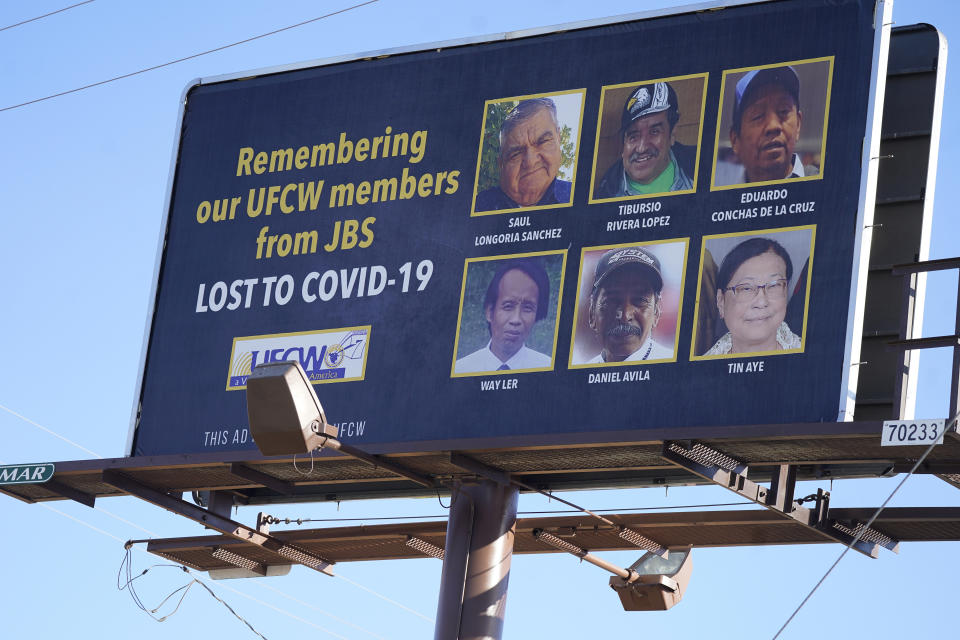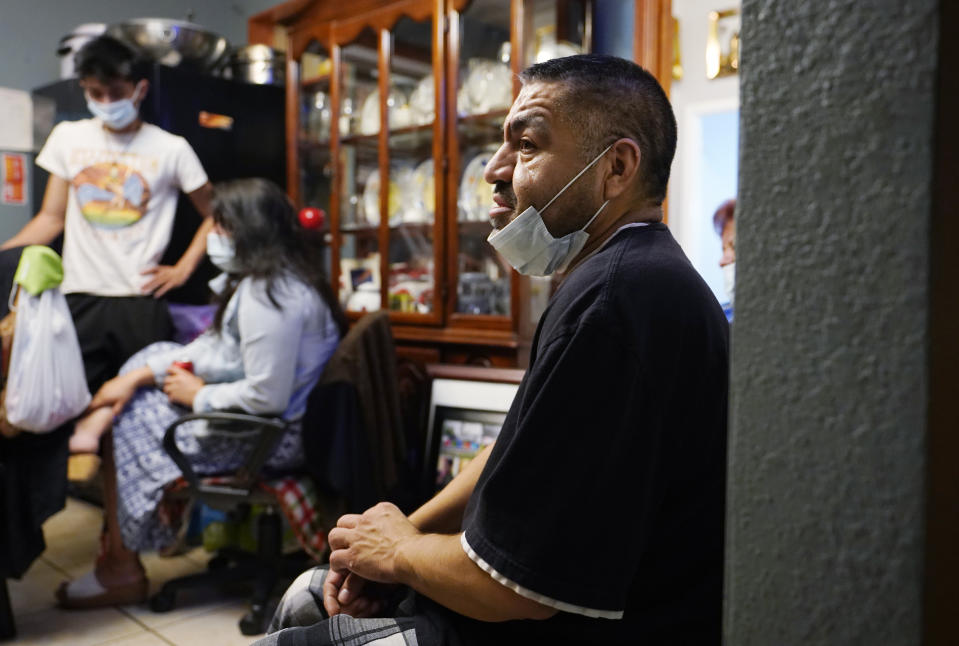Lives Lost: Mexican meatpacker left legacy of compassion
GREELEY, Colo. (AP) — Saul Sanchez came to the U.S. from Mexico hoping to save his youngest daughter’s life. What he found was a new life for his family, a boss who volunteered to pay for his daughter’s medical treatment – and a rural Colorado community he loved.
He spent decades working alongside other immigrants and refugees at a JBS meatpacking plant in Greeley that would become a coronavirus hotspot. When he died of the virus in April, the community embraced his family, overwhelming them with tales of his compassion.
His oldest daughter, Estela Hernandez, admits she didn’t know how far her father’s kindness stretched until a homeless man came to pay his respects because Sanchez had given him a blanket one winter and paid him to shovel snow.
“We’ll never do as much as he did, or probably make as big an impact as he did, but we pretty much have a really good role model,” said Betty Rangel, his second-eldest child.
Sanchez’s family remembered a humble man who was devoted to his children, taught them to be grateful for the opportunities they have, made sure they always focused on their education, and watched his youngest, Patty, grow up to become a nurse.
___
EDITOR’S NOTE: This is part of an ongoing series of stories remembering people who have died from the coronavirus around the world.
___
In the early 1970s, it was Patty who needed help. She had kidney failure, and Sanchez, then a manager of 15 pharmacies, needed help to pay her medical bills. He left Ciudad Juarez, which sits across the border from El Paso, Texas, in 1972 for a landscaping job in Parker, Colorado. The family followed in 1976.
“He went from wearing a tie to laying sod and working a very hard job. Never complained. Never complained and always told us we should be grateful for whatever opportunities we had,” Betty Rangel said.
Although Sanchez came to the U.S. to earn money to pay for Patty’s medical bills, he ended up getting help from his boss. The owner of the landscaping company paid for her treatments “because he really valued my dad,” Rangel said.
When the family moved to Greeley, they opened the town’s first Mexican bakery in 1992. As their father made inroads at the JBS USA-owned plant, he also gave back to the community by sponsoring local sports teams just as he had back in Juarez.
“He didn’t keep anything for himself, like he wanted to give as much as he could of himself to the community, to us,” said Estela Hernandez.
When money was tight, Betty and Estela volunteered to quit school to work and help pay the bills. But their father rejected the idea. Education was first, he said.
During nursing school, Patty Rangel said, she told her father she couldn’t afford textbooks.
“He handed me the money, he goes: ‘Don’t worry about it, your education and what you’re doing is the most important thing. I’ll support you and what you need.’ And he would be like: ‘Don’t buy used, buy new. These are for you,’” she recalled.
When Sanchez wasn’t working overtime, which was hardly ever the case, he liked to read, exercise and take early morning walks. On one occasion in the park across from Patty’s house, he serenaded her, singing “Happy Birthday” — at 7 a.m.
Decades’ worth of laugh lines inscribed on his cheeks, Sanchez delighted his family with his sense of humor, complimented his wife’s cooking of tortillas and beans as the best meal every time he had it and proudly wore the same Denver Broncos shirt too often.
The family’s house, filled with family photos and Christian art, became the center for birthdays, holidays and Saturday get-togethers. The house itself was a gift. An older woman who lived there and whom Sanchez looked after gave it to them after she died.
“That was my dad’s happiness, was to have us all here all the time,” Betty Rangel said of the house. “And we grew up knowing that family, to us, is very important.”
Since their father’s death, the family has redirected their mourning and pain, joining other JBS families and the local meatpacking workers’ union to denounce what they call the company’s lack of coronavirus safety policies and practices for its workers.
Six workers, including Sanchez, died and the union is fighting to get compensation.
Sanchez’s family and the union say he was sick and working before he went on a scheduled vacation. JBS said it was unaware that he was sick at the time, adding that while they offer condolences to his family, it’s unclear where he caught the virus.
On March 24, Sanchez was admitted to the hospital. A virus test came back positive.
Patty Rangel, his youngest, worked as a nurse at the same hospital. The family wasn’t able to see him to limit their exposure to the virus, but she was: She donned protective gear and sat by his side when the ventilator was turned off. He was 78.
“Was I blessed to be there? Yes. Was that difficult? Yes. I can’t imagine not seeing my dad before he passed. I just can’t,” she said.
___
Nieberg is a corps member for the Associated Press/Report for America Statehouse News Initiative. Report for America is a nonprofit national service program that places journalists in local newsrooms to report on undercovered issues.
